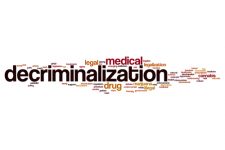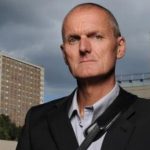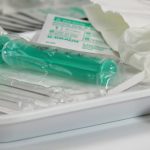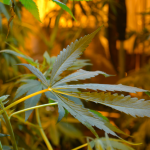Decriminalise Drugs Now, Demand Top Brass

Former NSW premier Bob Carr and former Victorian premier Jeff Kennett launched the new Australia 21 report in Sydney last Monday. Entitled Can Australia Respond to Drugs More Effectively and Safely?, the report outlines thirteen key recommendations aiming to decriminalise drugs and minimise the harms associated with their use.
Australia 21 is an independent public policy think tank that was formed in 2001. The report – the third they’ve released in five years on this issue – is the result of a roundtable of law enforcement and other experts held at Sydney University in September 2015.
The meeting was convened by Mick Palmer, former commissioner of the Australian federal police and the Northern Territory police.
An ex-law enforcement head isn’t the usual suspect, when you think about the topic of drug decriminalisation. But Mr Palmer’s been saying for years now “we cannot arrest and imprison our way” out of the issues surrounding illegal drugs.
Law enforcers admitting prohibition doesn’t work
And according to Dr Alex Wodak, president of the Australian Drug Law Reform Foundation, one of the most significant things about the report is that eleven of the sixteen participants at the roundtable were former senior law enforcement and law officials.
Amongst the group were four former police commissioners and assistant commissioners, two former heads of corrective services, a retired Supreme Court judge and a former Director of Public Prosecutions.
These are some fairly heavy law enforcement figures, who are now acknowledging that drug prohibition laws are a failure, as large-scale drug busts have done nothing to reduce supply. While the criminalisation of drug consumption has pushed use underground and increased the harms associated.
And the nation’s overcrowded prisons are filled with inmates who’ve been caught with small quantities of illicit substances. According to the Australian Crime Commission there are 80,000 arrests for drug consumption each year.
Some of the key recommendations
So what are these former masters of the lock and key calling for? Rather than trying to stamp out the personal use of psychoactive drugs, they’re recommending that people should be assisted in making wiser choices and minimising harms.
There needs to be recognition that drug use is primarily a health and social issue, and not a law enforcement one. So investment should be directed away from law enforcement and towards harm minimisation programs.
Drug checking services – such as pill testing at music festivals – that make users aware of what they’re actually consuming are one of these programs where money could be directed.
This evidence-based approach has been carried out in many European countries for decades now. And indeed, the European Union has actually produced pill testing best practice guidelines.
The roundtable also called for a review of the much criticised roadside drug testing program. Currently the devices used by police test for small traces of certain illicit substances that may have been consumed days prior.
The report emphasises that the focus should be on testing for driver impairment, especially as the use of medicinal cannabis becomes legalised.
New horizons in drug law reform
Dr Wodak, who’s also the director of Australia 21, said that one of the most significant recommendations the report makes is “starting a process whereby the black market is replaced as much as possible by a white market.”
So certain illicit drugs would start to be sold in a regulated and taxed way.
And there’s movement at the station. An encouraging development is a change in public opinion in regards to recreational marijuana Dr Wodak told Sydney Criminal Lawyers®. “Fifty five percent of the community now support regulating and taxing recreational cannabis.”
“The report also connects extreme poverty and illicit drug problems,” Dr Wodak pointed to as another important factor of the report, because that’s never been acknowledged “before in Australia.”
But the doctor also outlined that the report could have gone further in its recommendations, “such as expiating criminal convictions for persons found in possession of quantities consistent with personal use.”
“It’s important to keep reminding ourselves that drug law reform is a process, not an event,” he added.
Australia-wide drug consumption rooms
The report also makes the case for the need for more drug consumption rooms to be established around the country, in light of the overwhelming success of the Uniting Medically Supervised Injecting Centre (MSIC) in Sydney’s Kings Cross.
Indeed, the two ex-premiers who launched the report have a close association with this initiative.
Bob Carr said at his retirement that the establishment of the MSIC was one of his ten greatest achievements in office. While Jeff Kennett has been one of the most vocal advocates for a safe injecting room to be established in Melbourne’s north Richmond for years now.
At the needle’s edge
Medical director of the MSIC Dr Marianne Jauncey said that while she’s ‘obviously very heartened by the support the report” received, there was still “a very long way to go if we are going to ‘move the needle’ on these issues.”
The doctor – who’s outlined that there’s never been a fatal overdose at any of the 90-odd safe injecting facilities around the world – said, “We must push until we see the political courage to act, to have law changes, new approaches and new services opened.
While the report made some great recommendations, “they certainly came as no surprise to Uniting, the services and advocacy arm of the Uniting Church in Australia,” Dr Jauncey said and added that they too are “campaigning for a rethink on illegal drug use.”
“We’re also calling for the decriminalisation of the possession and use of small amounts of illegal drugs,” Dr Jauncey explained and went on to say that “we need to stop giving people criminal convictions and start treating personal use as a health issue.”
NSW’s peak drug user organisation
In 1986, an illegal pilot needle and syringe program (NSP) was set up by Dr Wodak in Sydney’s Darlinghurst, which led to legalised NSPs being rolled out across the country. A group of local inner city drug users were actively involved with the establishment of the program.
A few years later, this mobilised group of drug user activists formed the NSW Users and AIDS Association (NUAA). The current chief executive of NUAA Mary Ellen Harrod was at the launch of the Australia 21 report on Monday.
Ms Harrod totally agrees with the recommendations of the report and thinks the “tide is shifting” in terms of drug law reform. And as for the support from the senior law enforcement and law officials she was very impressed.
The need for PMs in office
But what she thought was lacking – and she recalled that Mr Kennett made the same remark at the launch – were some current politicians and not just those who’ve retired.
“We need some people that are willing to take a bit of a political risk and put their voice behind it,” Ms Harrod outlined. “And it’s difficult to see who that’s going to be at the moment.” She’s talking about a “heavy hitter” from one of the two major parties, who will put themselves on the line, or perhaps even a current police official.
And there needs to be some urgent movement on the ground to deal with what Ms Harrod describes as the “giant crisis happening” on the streets of Melbourne at the moment.
Like Victorian Sex Party MLC Fiona Patten and Mr Kennett are arguing, Ms Harrod thinks it’s “crystal clear” that action has to be taken on establishing a safe injecting room in north Richmond immediately.
Peer involvement is a necessity
And there’s one omission that the report makes as far as Ms Harrod is concerned and that’s the involvement of people who use drugs themselves and their families.
“In terms of what the specific recommendations are, I think we really need to look at consumer engagement and peer involvement,” Ms Harrod concluded. “Not only in the processes, but in the services. In working with health treatment to make it better and more accessible.”







